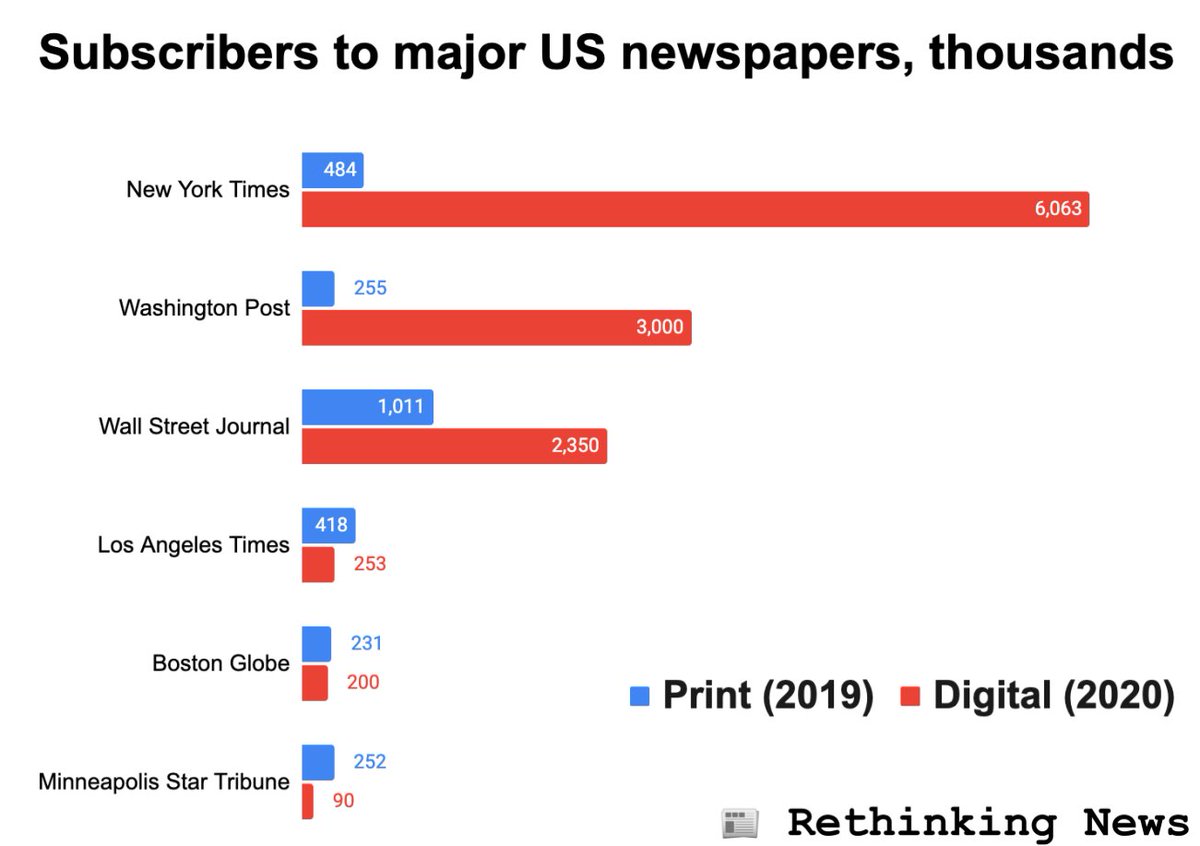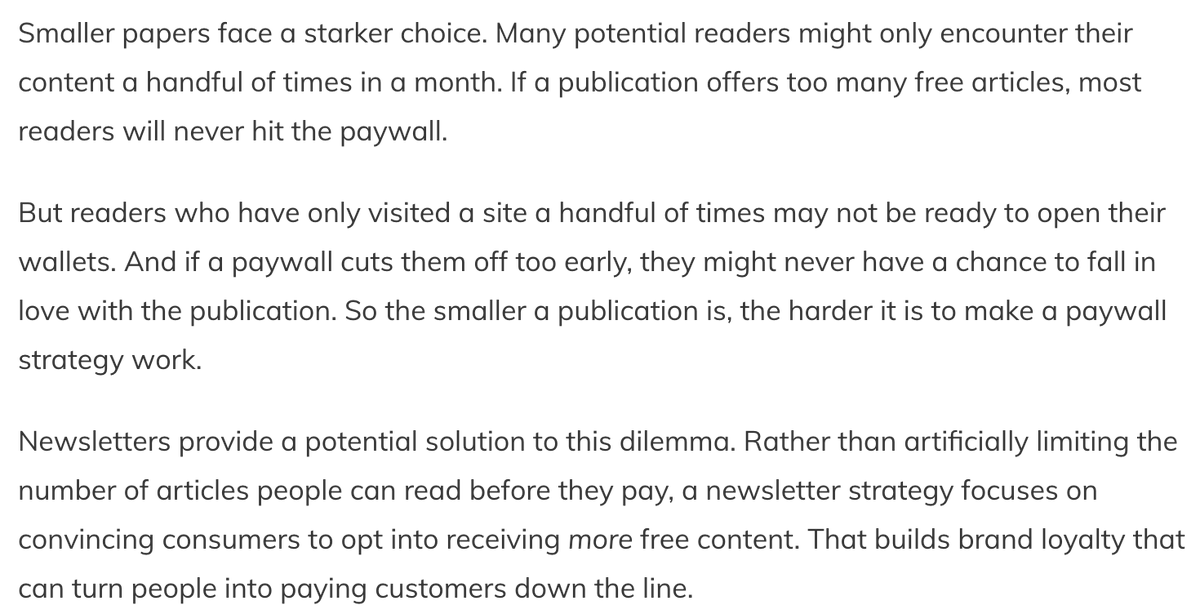
The anti-inflation case for bitcoin makes so little sense that I'm surprised anyone believes it. But apparently thousands (millions?) of people do! I didn't want to bog down my piece too much but let's unpack it here. fullstackeconomics.com/why-el-salvado… 

Economists say that money serves three basic purposes: (1) medium of exchange, (2) unit of account, (3) store of value. To be good money, an asset has to serve all three functions well.
Bitcoin enthusiasts focus obsessively on the "store of value" part. The dollar loses about 2 percent of its value each year. Bitcoin has obviously gained a lot of value over the last decade. So if you only care about money as a store of value, maybe bitcoin is a good currency.
Even here bitcoin's advantages aren't so obvious. Yes, you want your store of value to appreciate, but you also want to minimize the risk of big losses.
The dollar isn't going to gain 10x in value over the next 20 years, or fall by 90 percent. Both outcomes seem more likely with bitcoin. If you're near retirement, you might reasonably hold your savings in dollars to minimize the downside risk, even at the cost of less upside.
Bitcoin is obviously inferior on the other two dimensions. A worker living paycheck to paycheck doesn't want his medium of exchange to fall 15 percent between when he gets his paycheck on Wednesday and when he pays his rent on Friday.
Similarly, it would be insane to take out a mortgage denominated in bitcoin. If you're an employer, you'd be crazy to denominate your employees' wages in bitcoin. Bitcoin is a bad unit of account.
Note that appreciation isn't a virtue for a unit of account. A currency whose value can go up 10 percent in a day is just as bad as one whose value can go down, since there's often a debtor, customer, or employer are on the "other side" of a transaction.
These problems would be mitigated domestically if an entire country adopted bitcoin as its unit of account. If your paycheck and your rent are both denominated in bitcoins then you don't need to worry about your paycheck losing value before you pay your rent.
But that just shifts the problems to the international level. If El Salvador fully bitcoinized its economy, then Salvadoran firms that trade internationally would be driven into bankruptcy if bitcoin's value appreciated or depreciated at the wrong time.
If El Salvador made bitcoin its unit of account, then a big increase in bitcoin's value would make El Salvador's exports uncompetitive on world markets, throwing lots of people out of work. El Salvador wisely didn't do that.
Both sides of a transaction need to be using the same money for it to function as a medium of exchange and a unit of account. But there's no reason different people need to use the same store of value.
If you don't want to store your wealth in dollars you can store it in bitcoins, Google stock, gold bars, land, beanie babies or whatever else, without inconveniencing anyone else. So in this sense the store of value function is the least important for a currency.
Some libertarians seem obsessed with the plight of a financially unsophisticated person who puts dollars under a mattress and thereby loses wealth to inflation, even as they show little interest in protecting people from other bad financial decisions.
But it would be crazy to pick a currency that's a bad medium of exchange and a bad unit of account (and not necessarily a great store of value for that matter) just to protect a small slice of the population from their own bad financial decisions.
• • •
Missing some Tweet in this thread? You can try to
force a refresh










